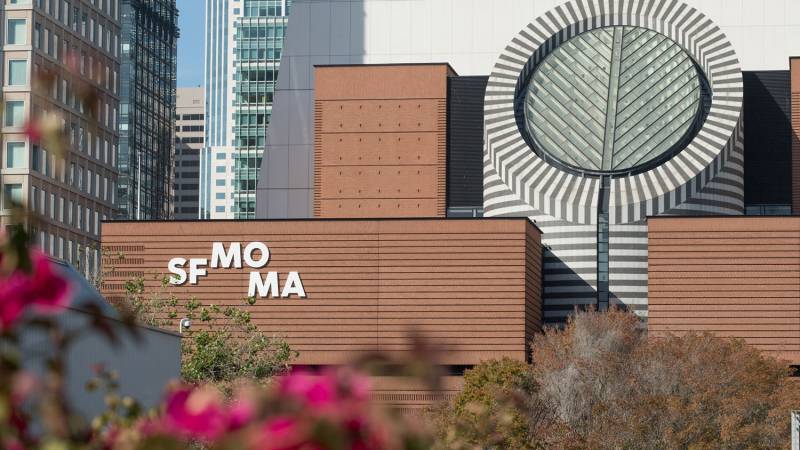The museum will also close its store in the San Francisco International Airport on July 31, and will discontinue its Modern Art Council membership group, effective immediately.
Seven staff positions will be cut in all.
The San Francisco Museum of Modern Art has grappled with declining attendance since at least 2018, a trend the pandemic only exacerbated. In March 2020, SFMOMA laid off or furloughed over 300 employees; the museum only brought back 9 regular employees and 11 on-callers.
Rick Prelinger, the prominent film archivist and UC Santa Cruz professor, mourned the “thoughtfully curated, adventurous and artistically exciting” film programming at SFMOMA’s Wattis Theater, and specifically noted the diverse audience served by the cut programs.
“The Museum’s reputation and ability to draw broad audiences offered many underrepresented makers (notably artists of color and LGBTQ+ filmmakers) a conspicuous platform for their work,” Prelinger told KQED in an email. “Frontline curators and staff have done so much to open SFMOMA to an inclusive range of voices and experiences, and losing the film program and Open Space (to name just two programs) is a shortsighted move that will be a great loss to living artists and the Bay Area community.”
When asked for comment, SFMOMA emailed KQED a statement from museum leadership:
We are committed to our mission of being a dynamic center for modern and contemporary art, engaging and inspiring a diverse range of audiences. The reality is that the pandemic has had a major impact on our operations, exacerbating existing challenges such as reduced attendance, growing expenses, and constrained budgets. Our goals remain unchanged. In order for SFMOMA to sustain a healthy institution for our community, we must shift our approach to make these goals more actionable and successful in today’s dramatically changed environment. We are committed to programming that enhances visitor experience, both in our galleries and throughout the museum. We thank our members and visitors for their continued support, and look forward to introducing these changes as we move forward.
Correction: This post originally stated that the Artists Gallery represents 300 Bay Area artists. That number is 200.
This story was updated to include quotes from Scott “Tofu” St. John and the dates of the impending closures of the film program, airport store and Modern Art Council program.


